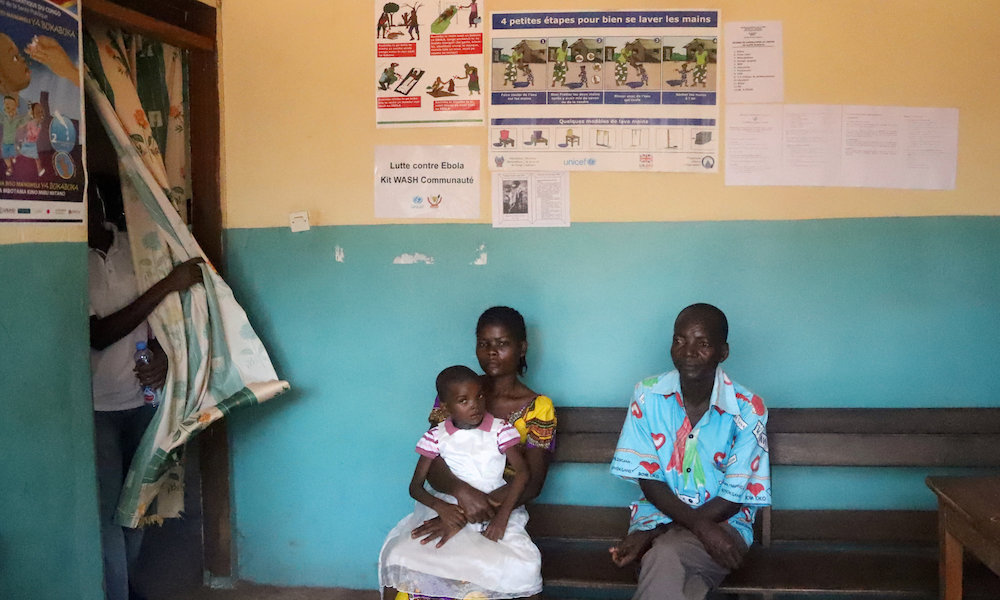Caritas Congo says an ongoing Ebola outbreak in the country is worrying, after at least 211 cases have been recorded with at least 135 people dead from the disease.
The Catholic charity has taken a leading role in fighting against the disease.
Emmanuel Mbuna Badjonga of Caritas Congo told Crux that the organization has been involved in community mobilization and hygiene and sanitation campaigns to reduce the risks.
“Sensitization is based on the rules of hygiene that need to be observed against Ebola. We have put up several billboards and organized several conferences with community leaders, professional groups - traders, transporters, teachers, priests, pastors etc. - and we make use of community radios to reach out to the public with messages against Ebola. Sensitization messages from the country’s bishops are read in churches,” Badjonga explained.
Badjonga said the epidemic continues to spread: Although no new cases have been found in the northern Ituri province for several weeks, the disease has spread south, including in the violence-torn North Kivu province.
Now there is a concern the disease might go beyond Congo’s borders.
Dr. Tedros Adhanom Ghebreyesus, director-general of the World Health Organization, said his organization was “very concerned about the potential for the virus to spread into Uganda, but also into Rwanda, South Sudan and Burundi. We are working very closely with those governments on operational readiness for Ebola.”
Badjonga said Caritas also offers material assistance to those already infected. But concern that the disease could continue to spread has been rising, as the public shows resistance to the health campaign.
“Some people refuse to believe that Ebola is a disease that can be treated in hospital and prefer to consult witch doctors or traditional practitioners. There are even some who don’t believe that Ebola exists and that it can be contracted by simple contact with infected persons. These people don’t take any hygiene and sanitation measures,” he said.
Badjonga said such resistance, coupled with high population mobility, has been driving the spread of the epidemic.
While the first case of the virus was recorded in the locality of Mabalako in Ituri province, the Epidemiology Center was moved recently to Beni, about 20 miles away.
Badjonga worries that this could further worsen the spread of the virus, given that Beni has deep ties with the very populated towns of Butembo, Bunia, Goma and Kisangani.
The country’s refugee crisis could further exacerbate the spread of the disease. North Kivu and Ituri are home to over a million refugees and internally displaced people and their movement through and out of the provinces.
In addition, the rising insecurity in the Congo means that humanitarian teams can’t be deployed to affected areas.
ADF-NALU rebels with origins in Uganda recently attacked the town of Beni, making the deployment of medical and humanitarian teams nearly impossible.
In a tweet, Dr. Peter Salama, the WHO’s deputy director-general of emergency preparedness and response said: “With each new violent incident in northeast DRC, the community loses further trust, protests and further violence limit our access, and more cases and contacts are lost to follow-up. This vicious cycle increases the risk of Ebola spreading.”
Personnel from the U.S. Centers for Disease Control and Prevention who have been stationed in the Democratic Republic of Congo to help control the ongoing Ebola outbreak have been pulled back from the worst impacted areas due to safety concerns, according to CNN.
“They are not in any hot spots,” CNN cites an unnamed official as saying.
WHO spokesman Tarik Jasarevic has attributed the recent spike in cases to the “challenges faced by the response team.”
“For a couple of days we were not able to function really, and in the last couple of weeks we could not function at 100 percent,” he said.
“The recent spike in violent incidents makes the response more difficult and increases the risk of spread not only in the DRC but also in neighboring countries,” Jasarevic said.
Ebola causes fever, severe headache and in some cases hemorrhaging. It kills about half of those infected, but fatality rates in individual outbreaks have varied from 25 percent to 90 percent.
The current outbreak is the second in the Democratic Republic of Congo this year. The first ran from May to July and killed 33 people out of the 54 reported cases. The deadly virus was first discovered in the area in 1976, and the current outbreak marks the tenth to hit the country.
According to figures compiled by the European Commission there have been 1,056 reported cases and 756 deaths from the disease in that time, not including the current outbreak.

